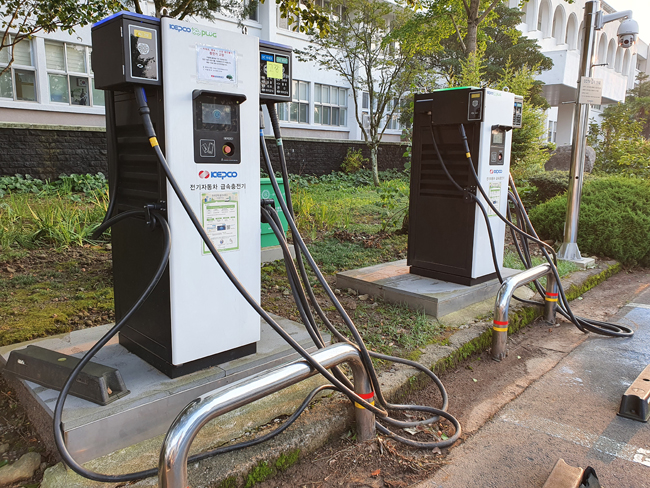
You may have seen vehicles with a blue license plate instead of a white one. Korea only allows electric or hydrogen vehicles to have blue registration plates. In fact, there is only one hydrogen car in Jeju, so perhaps what you have seen were electric cars. The number of electric vehicles registered on the island exceeded 20,000 for the first time and, this is about 5 percent of the 390,000 registered vehicles in the province.
However, the increasing rate of electric vehicle registration is slowing these days. The price of the newest electric vehicles is rising due to their enhanced batteries, and the government’s subsidies for purchasing electric cars are decreasing. Most importantly, the lack of EV charging stations is considered to be the biggest obstacle.
On the island, there will be a ‘Jeju EV Charger Airbnb’ business, which allows owners of private EV chargers to make profits by lending the chargers to others. There are nearly ten thousand personal chargers installed in apartments and houses, but except for when the owners are using them, they are left unused. Also, it is hard to install additional chargers because there are problems with securing space.
Before, if the charger owners wanted to make profits by sharing their private chargers, they had to first register as an EV charging business operator, and then hire an electrical administrator to manage and operate the business. However, Jeju enabled owners’ profit-making without registering as a business operator, if they entrust the chargers’ management to the shared platform.

